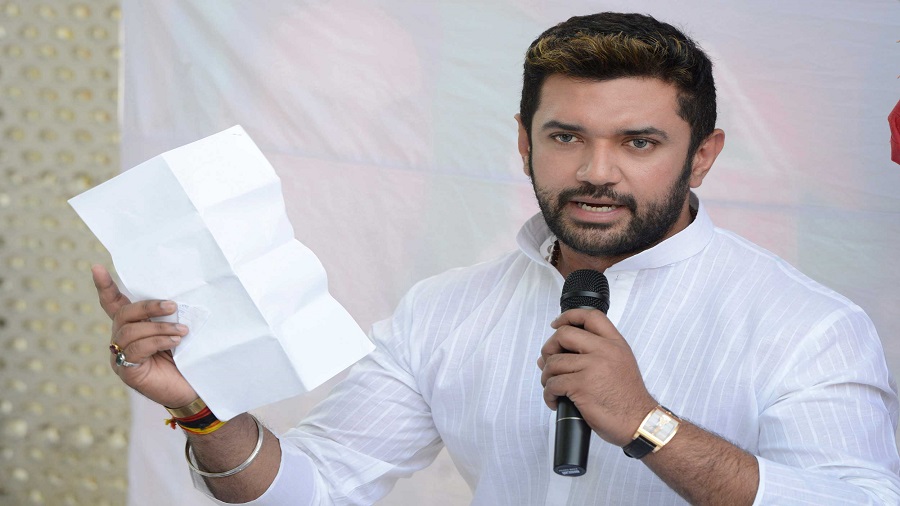Ram Vilas Paswan, Union minister and a prominent Dalit leader, passed away at a Delhi hospital on Thursday evening, days after he underwent heart surgery. He was 74.
His son Chirag, who has taken over the reins of the Lok Janshakti Party floated by his father, tweeted about his death. “Miss you Papa,” he tweeted. “Papa, you are no more in this world but I’m sure you’re with me, wherever you are.”
Ram Vilas’s death comes in the backdrop of the upcoming Bihar elections in which the LJP has under his son decided to contest alone, aiming to oust Janata Dal United chief Nitish Kumar from the chief minister’s chair.
Ram Vilas was the eldest of the Bihar triumvirate — which included Lalu Prasad and Nitish — that has lorded over the politics of the state over the last three decades.
All three, part of the socialist family, had emerged out of the anti-Congress movement led by Jayaprakash Narayan or JP in the seventies. The three had started out together but driven by ambitions of power politics, split and floated their separate parties.
Ram Vilas was initiated into politics at a very early age. He was elected to the Bihar Assembly at the age of just 23 in 1969, even before the anti-Congress JP movement took shape. In a coincidence, Ram Vilas passed away on the death anniversary of Jayaprakash Narayan.
In 1977, Ram Vilas was elected to the sixth Lok Sabha and in 1989 he was a cabinet minister in the V.P. Singh government.
There was no stopping Ram Vilas after his arrival in Delhi, hailing from a humble background in north Bihar’s Khagaria district. His political identity, however, was tied up with the reserved Hajipur Lok Sabha constituency, from where he set a world-record victory margin in 1977 after his post-Emergency release from jail. He represented Hajipur over many terms. At the time of his death, however, he was a Rajya Sabha MP.
He floated his Lok Janshakti Party in 2000 after the erstwhile Janata Dal formed by V.P. Singh splintered.
Ram Vilas, known to be a master political weathercock, managed to be in power in different parties’ governments led by different Prime Ministers, from V.P. Singh, Deve Gowda and I.K. Gujral to Atal Bihari Vajpayee, Manmohan Singh and Narendra Modi.
Unlike Lalu and Nitish, Ram Vilas remained focused on securing power in Delhi. He never appeared interested in donning the chief minister’s chair in Patna, though he derived his political strength from Bihar.
Holding sway over his Paswan (a caste among Dalits) support base, known to be militant and having a decent presence across Bihar, Ram Vilas could tilt the balance towards whoever he backed. He used that ability to remain in power.
Now his son Chirag is trying to step into the shoes of his father in the October-November Bihar elections. Chirag has declared the LJP would back the BJP but would go all out to defeat the saffron party’s partner in the polls, Nitish and his JDU. Chirag wants to oust Nitish and get a BJP-LJP combination to acquire power in Bihar.
His father had tried a similarly double-edged political manoeuvring in the 2005 Bihar Assembly polls. The LJP had then fielded candidates against Lalu Prasad’s Rashtriya Janata Dal while both were allies of the Congress-led UPA at the Centre. Ram Vilas had succeeded in his goal of ending Lalu’s 15-year rule in Bihar.
Son Chirag is trying out the same experiment in Bihar 2020 to end Nitish’s 15-year rule. If he succeeds, Ram Vilas’s legacy will continue to thrive.












